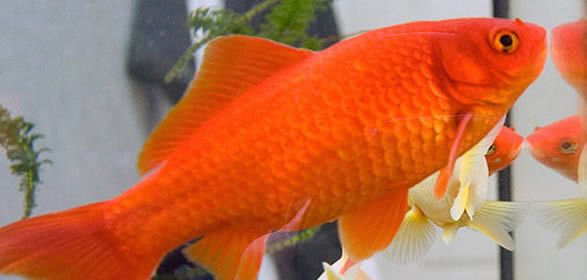Fish Have Good Memories and Can be Quite Cunning
Apparently, and hardly supprising for any one who kept fish for some time, the old belief that a fish only has a three second memory is complete balderdash. In fact scientists have discovered that fish actually do have quite a good memory, and can actually be quite smart. They have also been noted to be capable of working in a team, and even acting quite deviously.
One scientists, Dr. Kevin Warburton, who has been engaged in research on the subject for many years, has discounted the whole three second fish memory idea, as “absolute rubbish”.
Fish have been discovered to be far more clever, than was previously thought.
Dr. Warburton expounded, “’Fish are quite sophisticated. Fish can remember prey types for months. They can learn to avoid predators after being attacked once and they retain this memory for several months. And carp that have been caught by fishers avoid hooks for at least a year. That fish have only a three second memory is just rubbish.”
Dr. Warburton’s research has been focused on the freshwater fish of Australia, and has been taking a look at how Silver Perch actually learn how to handle the varying kinds of prey they come into contact with.
He has also said that the fish seem to exhibit human behavior in some instances. “Some behavioral traits that we think are very human, such as deception, fish have as well,” Dr. Warburton explains,
“Fish can recognize other individuals and modify their own behavior after observing interactions between other individuals. For example Siamese fighting fish will attack other members of the same species more aggressively if they’ve seen them lose contests with other fighters.”
It has been noted that in reef environments that cleaner fish remove and eat parasitic organisms off of larger “client” fish. “But what’s fascinating is that they co-operate more with clients when they are being observed by other potential clients.” Dr. Warburton added. ‘This improves their ‘image’ and their chances of attracting clients. Some cleaners co-operate with small clients to raise their image so as to deceive larger clients, which they then cheat on by biting them rather than removing their parasites.”
The fish even take a second look at potential predators to see how much of a risk they pose. “For added safety, they often do this as co-operating pairs, with the two fish taking the lead alternately. They will approach predators most closely when they have co-operated in previous inspections.” he explained.
Some minnows will even recognize a dangerous environment by associating a certain smell in the water with “alarm” chemicals that are released by other minnows who were felled by a predator.
This just goes to show you, that fish not only are not as affable as we once thought them to be, but actually have an intricate social structure, advanced forms of communication, and can literally swim circles around their prey. This we need to re-evaluate our entire conception of these creatures.

Very interesting article. Being an owner of fish I do know that they are quite intelligent and they must have more than a 3 second memory (I’ve never though this to be true though), but it’s great to see it in the writing!
I’m on the verge of believing that they feel emotions too, as well, they get stressed, but mainly because of a certain fish in my tank. The fish I have is a male and he did have a wife, until the other fish ate her whilst I was away on holidays… :/ After that he seemed a lot less active and almost sad, then he became very aggressive to the other fish and chase them constantly and bully them when he can. Im not to worried about this though because he is a fair size smaller than the others. This reaction from this fish though makes me want to believe that they do have emotions as there is just no other explanation I can think of!